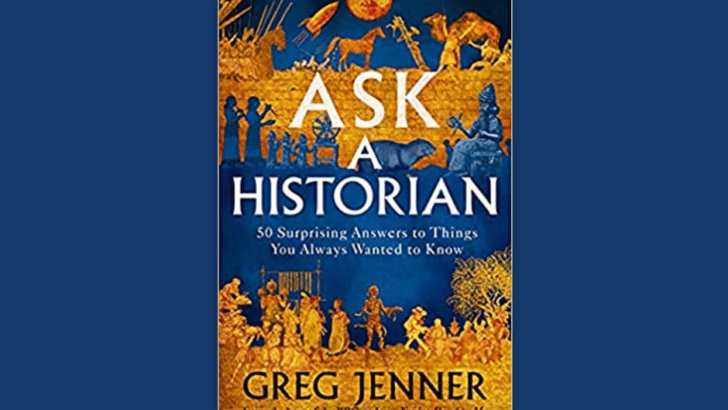Ask A Historian: 50 Surprising Answers to Things You Always Wanted to Know by Greg Jenner Weidenfeld and Nicolson, €19.99/£16.99
This is a quirky book, but it could be very useful for one organising a pub-quiz. It records a history professor answering 50 questions from his students. The questions range across all the ages and even into pre-history. And for the most part they refer to the more bizarre episodes of human experience.
As the News of the World posters used to claim back in the 60s, ‘All human life is here’! Greg Jenner classifies the Questions and Answers as follows: fact or fiction; origins and firsts; health and medicine; nations and empires; wars and battles; language and communication; history and pop culture. In replying to his students’ questions, he exhibits the qualities of a remarkably able historian.
Under ‘Fact or Fiction’ Jenner is asked: “Is it true that a dead pope was put on trial?” In January 897, Pope Stephen VI ordered that the corpse of a previous pope, called Fortunatus, be dug out of his grave and tried for various crimes at a special synod! It was a show trial beyond parody.
Dark Ages
The question prompts Jenner to describe a period which historians named the ‘Papal Dark Ages’, when in the words of Eamon Duffy, the renowned Cambridge historian, “The Chair of St Peter became the prize of tyrants and brigands and a throne fouled by fierce tides of crime and licentiousness…a ticket to local dominance for which men were prepared to rape, murder and steal.”
Some Catholic apologists would claim that the survival of the Christian Church for 2000 years, despite its being administered by corruptible men, is a proof of its divine institution!
Under Origins and Firsts one question prompts a discussion on the ‘Windrush generation’. On June 21, 1948 a ship, the Empire Windrush, arrived in England with 1,000 passengers, 800 of whom had been residents of the Caribbean islands. Many were tempted to come by the promise of a job on the buses.
Most of these passengers were embarking on a new life in the ‘Mother Country’, having been citizens of the British Empire. They were the first members of the so-called ‘Windrush generation’, a community of predominantly African-Caribbean immigrants who came to live and work in the UK between 1948 and 1976.
Initially the British authorities sought to have these returned to the West Indies. The Labour government feared that racial disharmony would add to Britain’s then mounting problems. The immigrants subsequently faced widespread discrimination and were exploited by slum landlords such as the infamous Peter Rachman.
Then there was the sinister influence of Enoch Powel’s’ rivers of blood’ speech. And in recent times Prime Minister Theresa May’s anti-immigration policy of creating a ‘hostile environment’ made their lives miserable with cruel and unlawful harassment.
Exchanges
The exchanges between the professor and his students reveal some curious facts. Caesar Augustus, the Roman emperor, is declared to have been the richest person who ever lived.
The first joke-book was the Philogelos, literally ‘The Laughter-Lover’, compiled by Hierocles and Philagrios in the Fourth century. Beauty treatment can be dangerous, even deadly – cue Botox.
‘Why is Italy called Italy?’ prompts a delightful pocket history of the modern State. Jenner is at his best when writing about the greatest ‘lost texts’ from history that we know existed but have not survived.
So this book is much like the ‘curate’s egg’! While it is interesting and very readable, the professor in some exchanges espouses the sophomoric humour of his students. And the book could well do without his strange personal attack on Mel Gibson.



